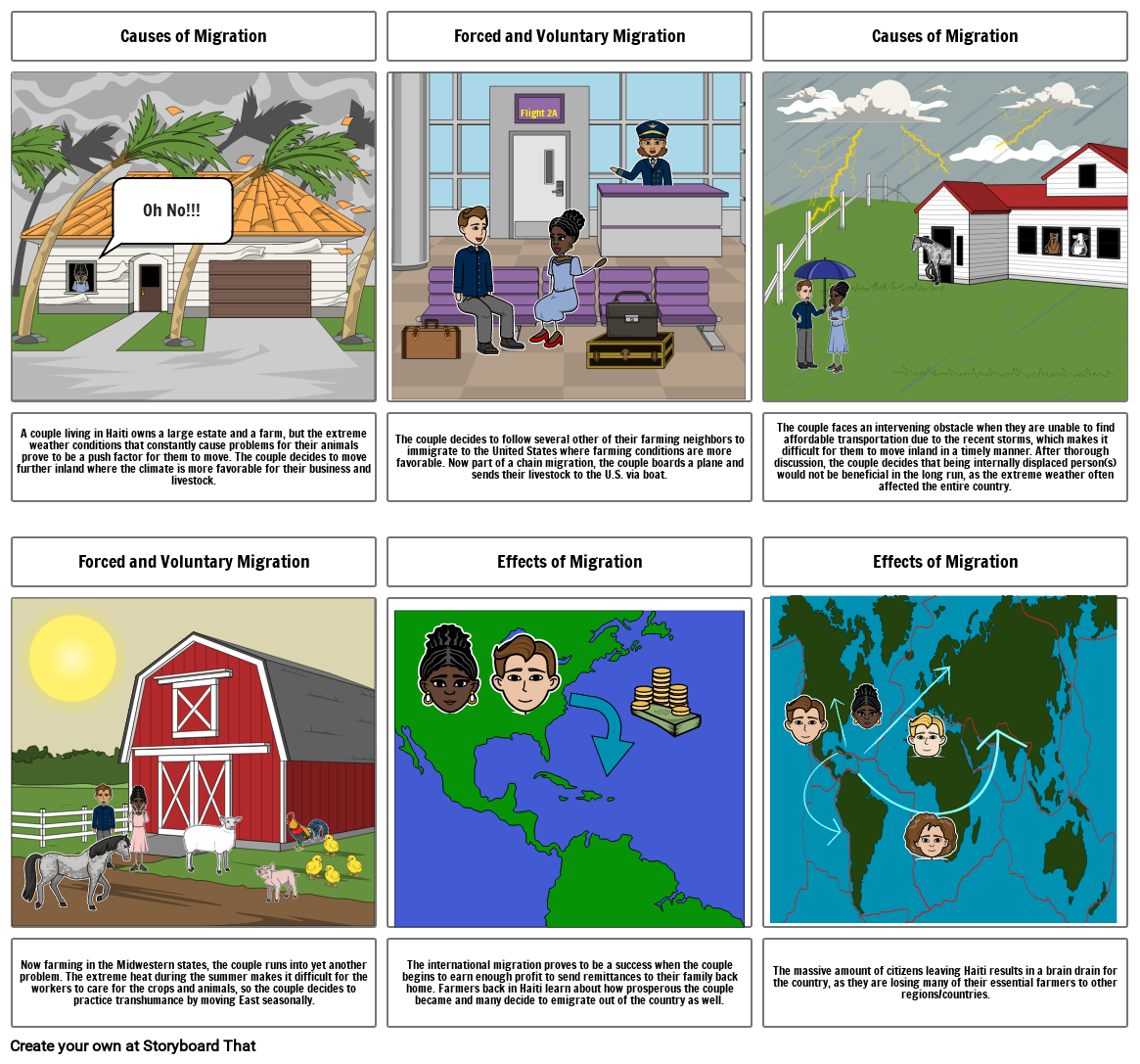migration

Storyboard Text
- Causes of Migration
- Oh No!!!
- Forced and Voluntary Migration
- Flight 2A
- Causes of Migration
- A couple living in Haiti owns a large estate and a farm, but the extreme weather conditions that constantly cause problems for their animals prove to be a push factor for them to move. The couple decides to move further inland where the climate is more favorable for their business and livestock.
- Forced and Voluntary Migration
- The couple decides to follow several other of their farming neighbors to immigrate to the United States where farming conditions are more favorable. Now part of a chain migration, the couple boards a plane and sends their livestock to the U.S. via boat.
- Effects of Migration
- The couple faces an intervening obstacle when they are unable to find affordable transportation due to the recent storms, which makes it difficult for them to move inland in a timely manner. After thorough discussion, the couple decides that being internally displaced person(s) would not be beneficial in the long run, as the extreme weather often affected the entire country.
- Effects of Migration
- Now farming in the Midwestern states, the couple runs into yet another problem. The extreme heat during the summer makes it difficult for the workers to care for the crops and animals, so the couple decides to practice transhumance by moving East seasonally.
- The international migration proves to be a success when the couple begins to earn enough profit to send remittances to their family back home. Farmers back in Haiti learn about how prosperous the couple became and many decide to emigrate out of the country as well.
- The massive amount of citizens leaving Haiti results in a brain drain for the country, as they are losing many of their essential farmers to other regions/countries.
Over 30 Million Storyboards Created
No Downloads, No Credit Card, and No Login Needed to Try!
